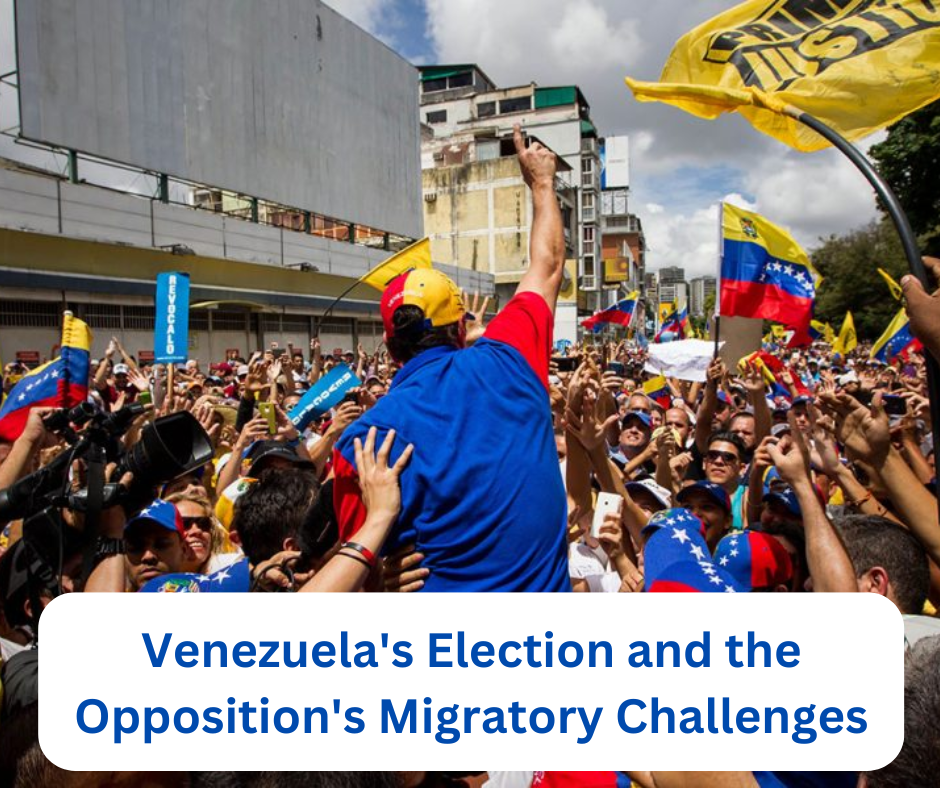Venezuela, a nation rich in natural resources and cultural heritage, has been embroiled in political turmoil for decades. The country’s upcoming election presents both challenges and opportunities for the opposition, many of whom have migrated due to political and economic instability. This article delves into the intricate dynamics of Venezuela’s election, the opposition’s strategies, and the impact of migration on the political landscape.
Venezuela’s Political Landscape
Historical Context
The roots of Venezuela’s political crisis can be traced back to the late 20th century, marked by economic mismanagement, corruption, and social unrest. The rise of Hugo Chávez in 1999 and the subsequent Bolivarian Revolution brought significant changes, both positive and negative. Chávez’s socialist policies initially garnered widespread support but eventually led to economic decline and political polarization.
Current Political Climate
Under Nicolás Maduro, Chávez’s successor, Venezuela has faced severe economic hardships, including hyperinflation, food shortages, and widespread poverty. Maduro’s administration has been accused of human rights violations, electoral fraud, and suppression of dissent. Despite international condemnation, Maduro maintains a firm grip on power, complicating efforts for a democratic transition.
The Opposition’s Struggle
Leadership and Unity
The Venezuelan opposition is a diverse coalition of political parties and civil society organizations united by their desire to oust Maduro and restore democracy. Key figures include Juan Guaidó, recognized by many countries as Venezuela’s interim president, and Leopoldo López, a prominent political leader. However, internal divisions and differing strategies have often weakened the opposition’s effectiveness.
Electoral Strategies
Facing a heavily skewed electoral system, the opposition has employed various strategies to challenge Maduro’s rule. These include boycotting elections deemed unfair, organizing protests, and engaging in international diplomacy to garner support. The upcoming election represents a critical juncture, with the opposition seeking to mobilize both domestic and international support to ensure a fair process.
Impact of Migration
Venezuelan Diaspora
The political and economic crisis has driven millions of Venezuelans to flee their homeland, creating one of the largest migration crises in the world. The diaspora, spread across Latin America and beyond, plays a crucial role in the opposition’s efforts. Migrants often serve as vocal advocates for democratic change and provide financial support to opposition activities.
Challenges Faced by Migrants
Venezuelan migrants face numerous challenges, including legal and economic hardships, discrimination, and integration difficulties in host countries. Despite these obstacles, many remain politically active, participating in protests, lobbying foreign governments, and raising awareness about the situation in Venezuela.
International Involvement
Global Reactions
The international community has been deeply divided over the Venezuelan crisis. Countries like the United States, Canada, and many European nations have imposed sanctions on Maduro’s regime and recognized Guaidó as the legitimate leader. Conversely, allies such as Russia, China, and Cuba continue to support Maduro, providing economic and military assistance.
Diplomatic Efforts
Diplomatic efforts to resolve the crisis have included negotiations facilitated by international organizations and regional bodies like the Organization of American States (OAS). While some progress has been made, achieving a lasting resolution remains elusive. The international community’s role in the upcoming election will be critical in ensuring transparency and fairness.
Future Prospects
Scenarios for Change
Several scenarios could unfold in the coming months. A successful opposition campaign might lead to a negotiated transition, restoring democratic governance and addressing the humanitarian crisis. Alternatively, continued division and repression could exacerbate the crisis, leading to further instability and suffering.
Role of Civil Society
Civil society organizations, including non-profits, religious groups, and grassroots movements, play a vital role in advocating for human rights and democratic reforms. Their efforts to document abuses, support affected communities, and pressure for political change are essential components of the broader struggle for democracy in Venezuela.
Conclusion
Venezuela’s upcoming election is a pivotal moment in the country’s history. The opposition’s ability to navigate the complex political landscape, harness the power of the diaspora, and secure international support will be crucial in determining the nation’s future. Despite the daunting challenges, the resilience and determination of the Venezuelan people offer hope for a brighter, democratic future.
